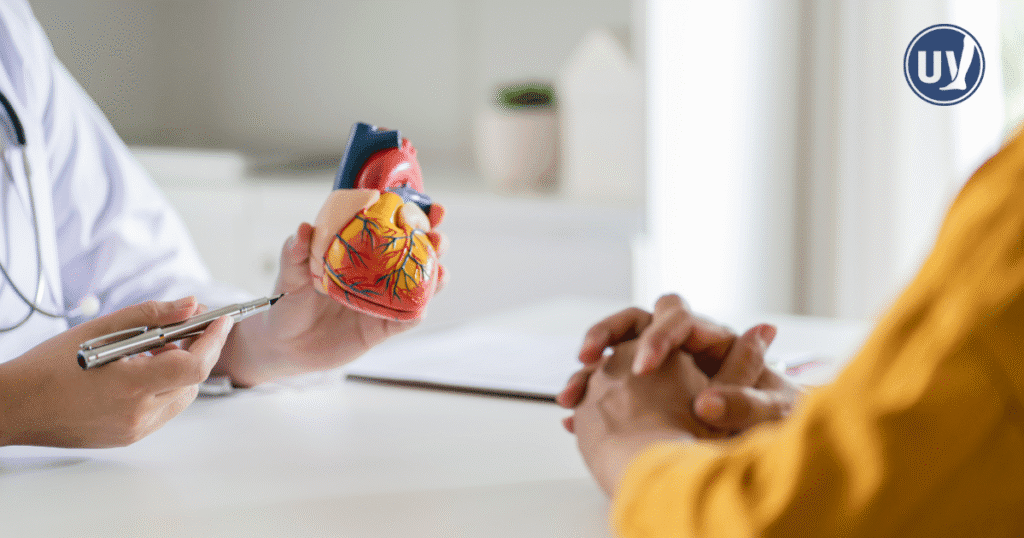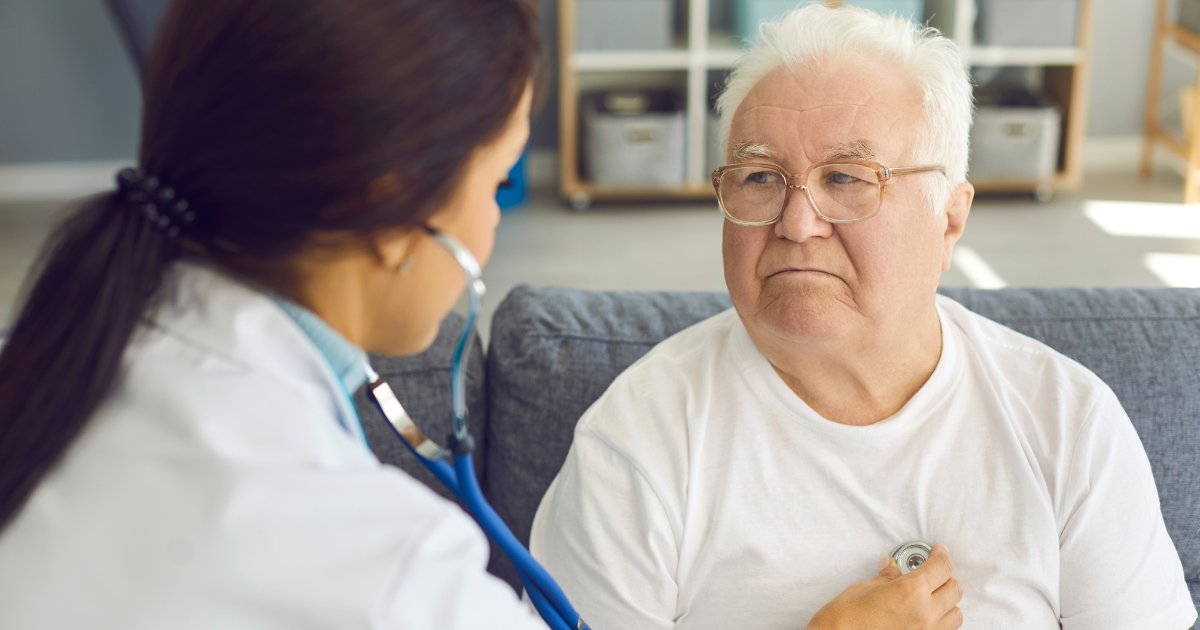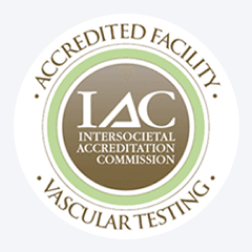Contents
- The Role of Veins in Circulatory Health
- Why Vascular Health Matters for the Heart
- How Poor Vein Health Affects Heart Function
- The Connection Between Chronic Venous Insufficiency and the Heart
- Heart Failure and Leg Symptoms
- How to Protect Both Vein and Heart Health
- When to Talk to a Specialist
- The Takeaway
- Frequently Asked Questions
Understanding the connection between vein health and heart health is crucial for anyone managing vein or vascular conditions. Veins play a central role in the circulatory system, responsible for returning deoxygenated blood back to the heart. When veins are not functioning properly, the entire circulatory system, including the heart, can be affected. This article explores how vein health influences heart performance and outlines proactive steps to maintain both vascular and cardiac wellness.
The Role of Veins in Circulatory Health
Veins are blood vessels that work to transport blood back to the heart after it has delivered oxygen and nutrients throughout the body. This task is supported by small one-way valves inside the veins, which help blood flow in the right direction. When these valves weaken or become damaged, blood can pool in the lower extremities, causing swelling, heaviness, and vein disorders such as varicose veins or chronic venous insufficiency (CVI).
Efficient vein function is essential for maintaining balance within the circulatory system. Poor vein performance can result in sluggish blood return, increased pressure in the lower limbs, and extra strain on the heart as it attempts to compensate.
Why Vascular Health Matters for the Heart
Vascular health includes the condition of veins, arteries, and capillaries. These vessels must remain strong and flexible to transport blood efficiently. If any part of the vascular system becomes compromised, the entire network feels the impact, including the heart.
When veins struggle to return blood effectively, the heart has to work harder to maintain proper circulation. Over time, this can increase the risk of cardiovascular conditions, such as high blood pressure or even heart failure. Maintaining healthy veins supports better heart function and ensures that oxygen-rich blood flows smoothly throughout the body.
How Poor Vein Health Affects Heart Function
The link between vein health and heart performance is especially important for people with pre-existing cardiac conditions or those at risk of developing them. When veins are damaged or underperforming, the body may experience:
- Blood pooling in the legs, increasing venous pressure
- Swelling and inflammation, which can limit mobility and worsen other conditions
- Fluid retention, which may extend to the lungs or abdomen, especially in advanced heart failure
As the heart works overtime to push blood through the body and compensate for impaired vein function, the risk of long-term heart damage increases. This cycle can gradually reduce heart efficiency, making early intervention essential.
The Connection Between Chronic Venous Insufficiency and the Heart
Chronic venous insufficiency is a condition in which veins in the legs cannot return blood to the heart efficiently. This leads to symptoms like leg swelling, pain, cramping, and skin discoloration. CVI is not just a leg issue, it is a cardiovascular concern.
When CVI goes untreated, it places a constant burden on the heart. The pooling of blood in the legs reduces overall circulation and leads to lower oxygen delivery to the heart muscle. Over time, this added stress can exacerbate hypertension and raise the likelihood of congestive heart failure.
Heart Failure and Leg Symptoms
Heart failure occurs when the heart can no longer pump blood effectively. One of its hallmark symptoms is leg swelling or edema. This often signals that fluid is not being adequately returned through the veins and is instead accumulating in the extremities.
Leg symptoms such as pain, tightness, or heavy sensations may be misinterpreted as local vein issues alone. However, these signs can be directly tied to heart strain and indicate the need for a broader cardiovascular evaluation.
How to Protect Both Vein and Heart Health
1. Stay Physically Active
Regular movement is one of the best ways to maintain strong circulation. Exercise encourages muscle contractions that help push blood back toward the heart. Walking, swimming, and cycling are all excellent choices.
Physical activity can also:
- Strengthen the heart muscle
- Improve vein valve function
- Reduce blood pressure
- Help with weight management
Aim for at least 30 minutes of moderate exercise most days of the week.
2. Follow a Heart-Healthy Diet
What you eat can have a direct impact on the health of your veins and your heart. A diet rich in vegetables, fruits, lean proteins, and healthy fats can help regulate blood pressure and cholesterol levels.
Include:
- High-fiber foods (whole grains, leafy greens)
- Omega-3 fatty acids (found in fish, walnuts, flaxseed)
- Low-sodium options to prevent fluid retention
- Antioxidant-rich foods (berries, citrus fruits, spinach)
Drinking enough water is also essential to keep the blood from becoming too thick and to support vein hydration and elasticity.
3. Wear Compression Garments
Compression stockings apply gentle pressure to the legs, encouraging blood to flow upward toward the heart. These garments are particularly beneficial for people who sit or stand for long periods and those with a history of venous disorders.
Wearing compression gear daily can reduce swelling, improve comfort, and support better vein performance, all of which can reduce the burden on the heart.
4. Avoid Prolonged Inactivity
Sitting or standing in one position for extended periods can negatively impact circulation. Whether at a desk, on a long flight, or working in a standing role, it is important to shift positions and move regularly.
Tips include:
- Taking short walking breaks every hour
- Flexing and extending the feet or doing ankle rolls
- Elevating the legs above the heart when resting
- Using footrests or adjustable workstations
Small movements throughout the day can make a major difference in circulation.
5. Seek Treatment for Vein Conditions
Ignoring vein symptoms like visible varicose veins, aching, or swelling can allow problems to worsen. Modern vein treatments are often quick, minimally invasive, and highly effective.
Sclerotherapy
This involves injecting a solution into problem veins, causing them to collapse and be absorbed by the body. It is ideal for smaller varicose or spider veins.
Endovenous Laser Therapy (EVLT)
This procedure uses laser energy to close larger faulty veins. It is effective, requires little downtime, and improves circulation by rerouting blood to healthy veins.
Radiofrequency Ablation
This treatment is similar to EVLT but uses radiofrequency energy to seal off veins. It is another excellent option for patients with symptomatic varicose veins or CVI.
Lifestyle Modifications
These include diet, exercise, and weight management, which are often prescribed in combination with medical treatments to maximize results and protect heart health.

When to Talk to a Specialist
If you are experiencing leg pain, swelling, skin discoloration, or visible veins, do not delay getting evaluated. These signs may indicate that your circulatory system is under stress. A vein specialist can assess your condition and recommend a treatment plan that supports both vein and heart function.
It is also important to speak with a provider if you have a personal or family history of heart disease, high blood pressure, or blood clots, as these may increase your risk of developing complications.
The Takeaway
Vein health and heart health are deeply interconnected. When your veins struggle to return blood effectively, your heart must work harder, potentially leading to serious complications over time. By understanding this relationship and taking proactive steps, you can improve your vascular function and protect your heart.
Prioritize your health by staying active, eating well, managing weight, and seeking professional guidance when needed. Small changes today can prevent big problems tomorrow. Your heart and veins work together, treat them both with the care they deserve.
Call to Schedule Your Consultation
Don’t wait—relief from painful veins and vascular conditions is just a call away. Speak with our team to book your appointment today. No referral needed, and most insurances accepted.
Frequently Asked Questions
Yes. If your veins are not circulating blood efficiently, your heart must work harder to maintain proper flow. Over time, this added strain can contribute to high blood pressure and increase the risk of heart failure.
Chronic venous insufficiency (CVI) symptoms include leg swelling, aching or heaviness, visible varicose veins, skin discoloration, and, in severe cases, open sores or ulcers.
Staying active, eating a heart-healthy diet, maintaining a healthy weight, and wearing compression garments can all support healthy circulation and reduce stress on your heart. Schedule a consultation with UVVC to create a personalized plan that supports your full circulatory health.


